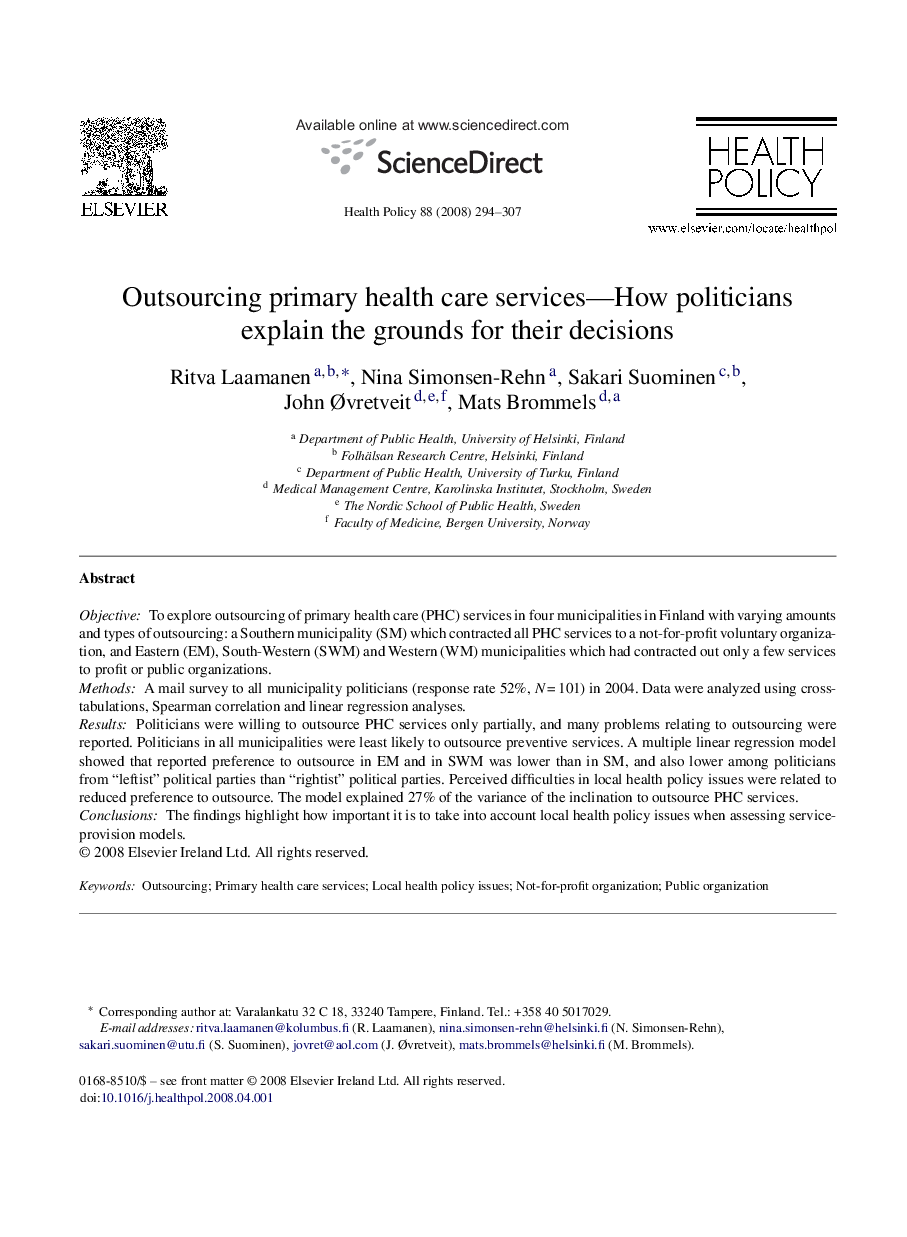| Article ID | Journal | Published Year | Pages | File Type |
|---|---|---|---|---|
| 4198814 | Health Policy | 2008 | 14 Pages |
ObjectiveTo explore outsourcing of primary health care (PHC) services in four municipalities in Finland with varying amounts and types of outsourcing: a Southern municipality (SM) which contracted all PHC services to a not-for-profit voluntary organization, and Eastern (EM), South-Western (SWM) and Western (WM) municipalities which had contracted out only a few services to profit or public organizations.MethodsA mail survey to all municipality politicians (response rate 52%, N = 101) in 2004. Data were analyzed using cross-tabulations, Spearman correlation and linear regression analyses.ResultsPoliticians were willing to outsource PHC services only partially, and many problems relating to outsourcing were reported. Politicians in all municipalities were least likely to outsource preventive services. A multiple linear regression model showed that reported preference to outsource in EM and in SWM was lower than in SM, and also lower among politicians from “leftist” political parties than “rightist” political parties. Perceived difficulties in local health policy issues were related to reduced preference to outsource. The model explained 27% of the variance of the inclination to outsource PHC services.ConclusionsThe findings highlight how important it is to take into account local health policy issues when assessing service-provision models.
